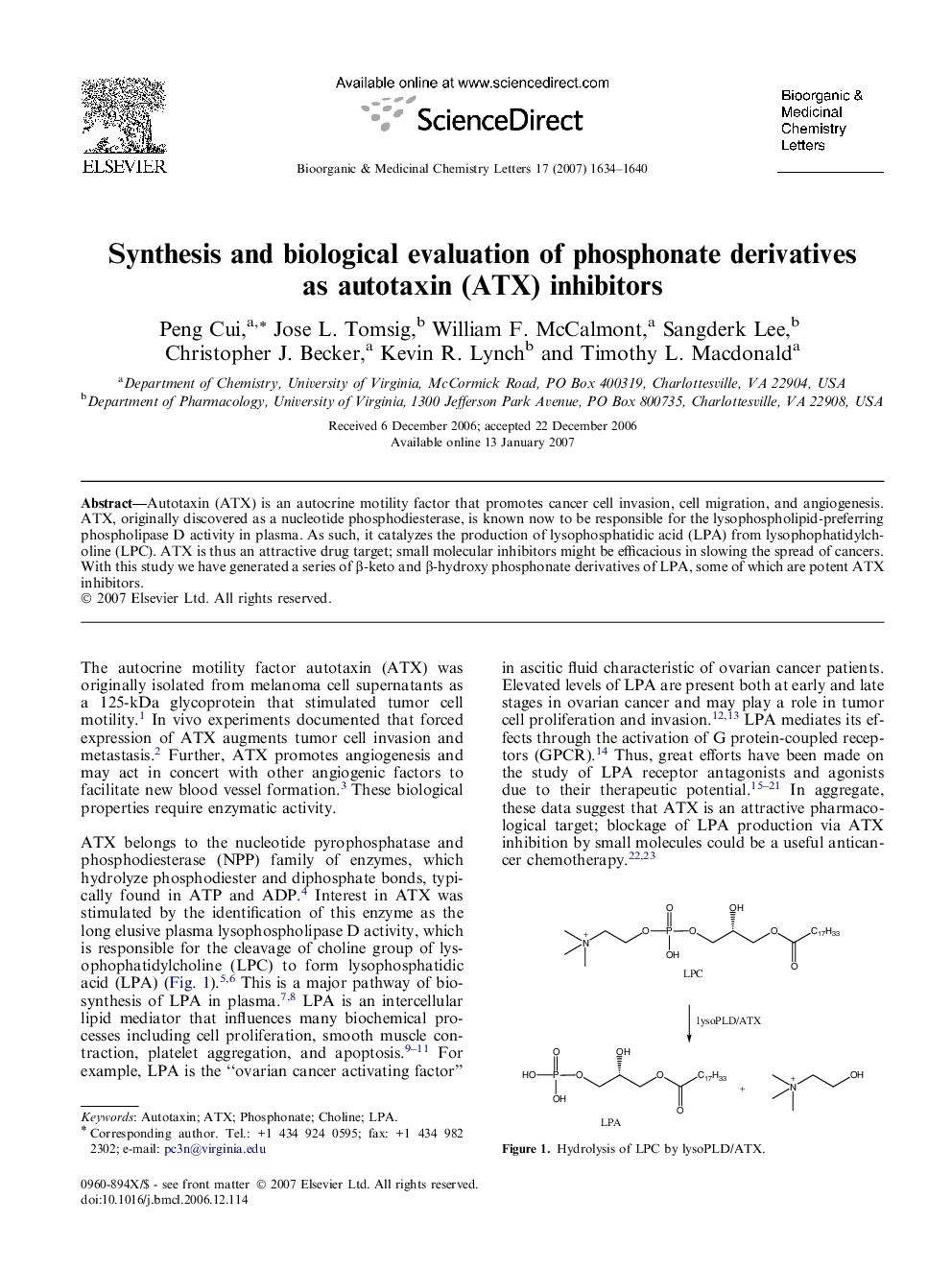| Article ID | Journal | Published Year | Pages | File Type |
|---|---|---|---|---|
| 1376280 | Bioorganic & Medicinal Chemistry Letters | 2007 | 7 Pages |
Autotaxin (ATX) is an autocrine motility factor that promotes cancer cell invasion, cell migration, and angiogenesis. ATX, originally discovered as a nucleotide phosphodiesterase, is known now to be responsible for the lysophospholipid-preferring phospholipase D activity in plasma. As such, it catalyzes the production of lysophosphatidic acid (LPA) from lysophophatidylcholine (LPC). ATX is thus an attractive drug target; small molecular inhibitors might be efficacious in slowing the spread of cancers. With this study we have generated a series of β-keto and β-hydroxy phosphonate derivatives of LPA, some of which are potent ATX inhibitors.
Graphical abstractA series of β-keto and β-hydroxy phosphonate derivatives were synthesized. They were tested for autotaxin (ATX) inhibition.Figure optionsDownload full-size imageDownload as PowerPoint slide
